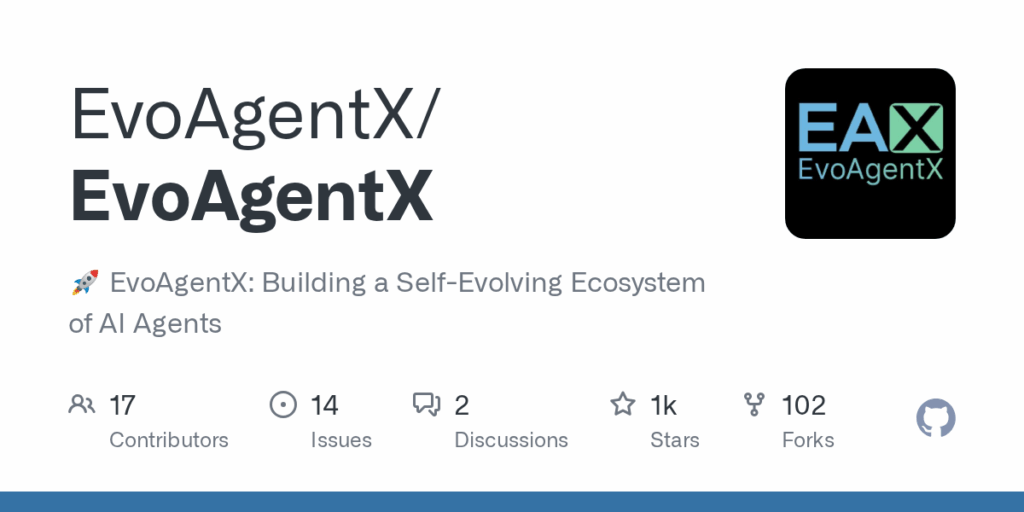EvoAgentX
Basic Information
EvoAgentX is an open-source framework for automatically generating, executing, evaluating and evolving multi-agent workflows driven by large language models. It is designed to convert natural language goals into structured workflows, instantiate agents, assign tools, run coordinated actions and collect outputs. The repository targets researchers and developers who build agentic systems and need systematic tooling for workflow generation, benchmarking and optimization. It bundles LLM integration, examples and tutorials to help users configure models, create agents, visualize graphs and persist workflows. EvoAgentX also integrates evolution algorithms to optimize prompts and workflow structures and provides utilities for human-in-the-loop interactions, tool-enabled agents and benchmark evaluation across tasks such as multi-hop QA, code generation and reasoning.








